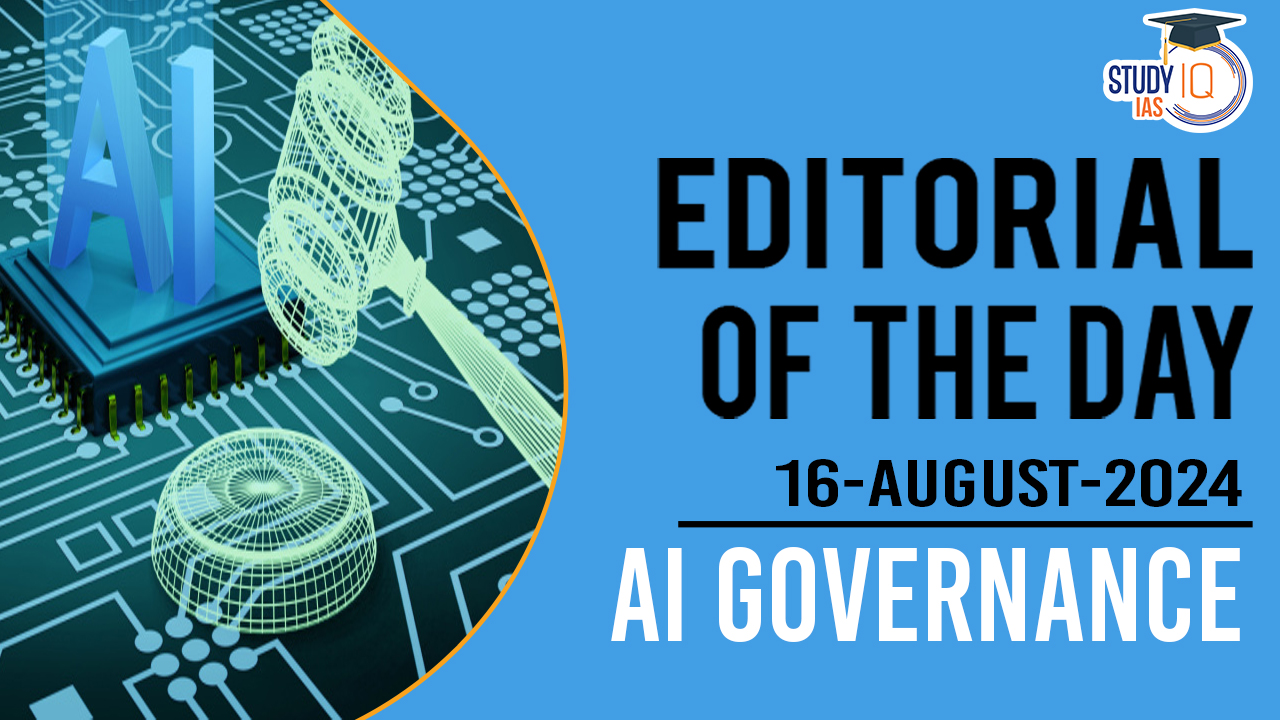Table of Contents
Context
The rapid advancement of Artificial Intelligence (AI) has not only transformed industries but also raised critical questions about corporate governance, particularly in the tech sector.
Shareholder Primacy vs. Stakeholder Benefit
- Traditional Corporate Governance: In capitalistic and neo-capitalistic economies, corporate governance has traditionally favoured shareholder primacy, where profit generation and wealth creation for shareholders are the primary objectives.
- Stakeholder Capitalism: In contrast, the stakeholder benefit approach in corporate governance seeks to maximise the benefits of all stakeholders, including employees, customers, and society at large.
Emergence of Alternative Governance Models
- Rise of Stakeholder-Focused Corporations: Recently, there has been a rise in corporations adopting governance models that lean towards stakeholder capitalism, particularly in industries like AI, where the social implications of products are significant.
- Generative AI and Social Responsibility: Generative AI technologies, for example, require governance structures that balance profit generation with social responsibility, due to their potential impact on privacy, bias, and inequality.
Issues in AI Development
- Privacy Concerns: The development of AI technologies requires vast amounts of data, raising concerns about privacy.
- Example: Meta was asked to pause its AI training efforts in Europe due to privacy concerns raised by regulators.
- Algorithmic Bias: AI systems can perpetuate human biases, leading to unfair outcomes.
- Example: Amazon had to discontinue a recruiting algorithm due to gender bias, and a Princeton study found that AI associated European names more positively than African-American names.
Corporate Governance in AI Companies
- Some AI companies, like OpenAI and Anthropic, have adopted public benefit corporate structures to prioritise responsible AI development.
- Anthropic, for instance, is governed by a Long-Term Benefit Trust, while OpenAI initially transitioned into a hybrid model with a capped profit-subsidiary.
- Despite these efforts, conflicts between purpose and profit remain.
- OpenAI’s internal governance crisis, where its CEO was fired and later reinstated due to commercial vs. ethical concerns, highlights the challenges in maintaining a balance between social objectives and profit-driven goals.
The Viability of Public Benefit Structures
- Milton Friedman’s Perspective: The tension between social responsibility and profit generation is not new.
- In 1970, Milton Friedman argued that the primary social responsibility of businesses is to generate profits for shareholders.
- Critique of Public Benefit Models: Recent events suggest that even in public benefit corporations, profit motives can overshadow social objectives, particularly in tech companies where stock-based incentives are prevalent.
Strategies for Ethical AI Governance
- Enhancing Long-Term Profitability: Policymakers should focus on enhancing the long-term profitability of companies that adopt public benefit purposes, incentivizing managerial compliance, and reducing compliance costs.
- Ethical Standards and Regulatory Support: To ensure the ethical development of AI, it is crucial to establish ethical standards for governance and provide regulatory backing through corporate governance reforms.
- This approach would help balance the conflicting interests of profit generation and social responsibility in the AI industry.
Conclusion
As AI continues to play a larger role in society, governance models that promote ethical AI development while also generating profits are essential. Policymakers must develop innovative regulatory strategies to ensure that the social objectives of AI companies are not subsumed by profit-driven goals.


 Places in News for UPSC 2025 for Prelims...
Places in News for UPSC 2025 for Prelims...
 New Phase of Operation Chakra to Combat ...
New Phase of Operation Chakra to Combat ...
 Soyuz Aircraft: History, Design and Sign...
Soyuz Aircraft: History, Design and Sign...





















